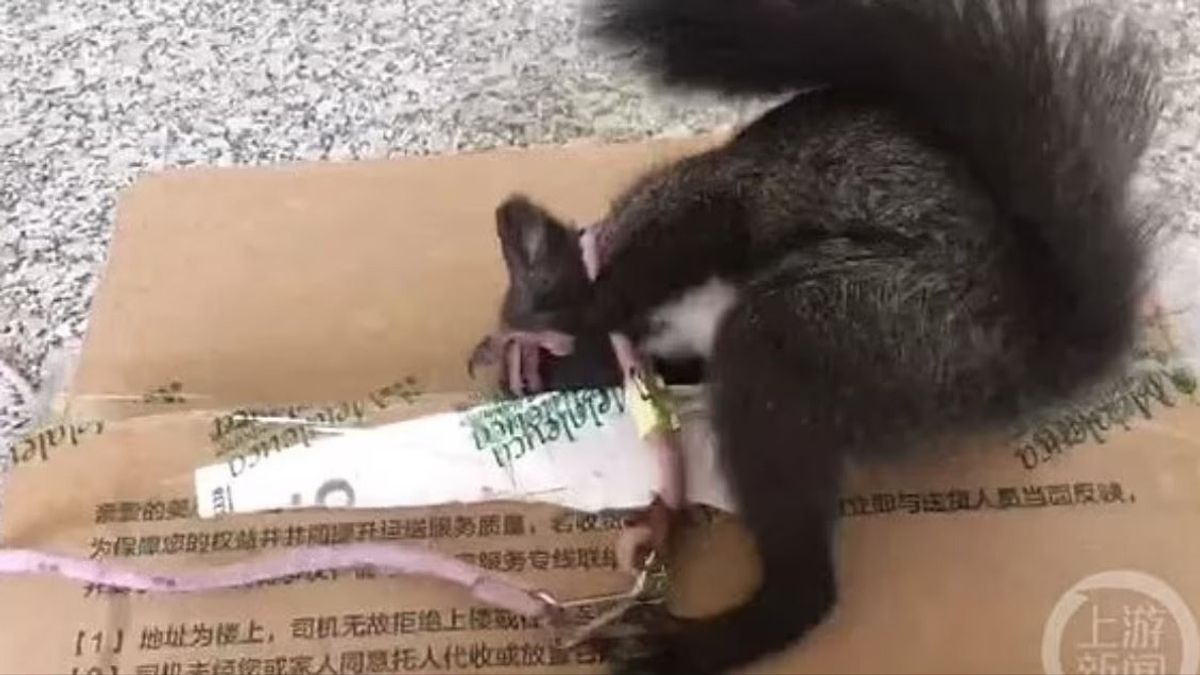JAKARTA - Traditionally, the dog always does the job of kissing illegal drugs out of 300 million receptors. However, it is likely that soon we will see different creatures running around the airport. Because the Chinese police have recruited the first squad of squirrels looking at their drugs.
Six Eurasian red squirrels have been "successfully trained" for the work by the Hechuan District Public Security Bureau in Chongqing, southwest China. Although they are equally efficient in detecting illicit substances, their small size allows them to find places that dogs cannot reach.
Including searching for storage bins that are compacted in warehouses or parcels in distribution centers, as well as those in high places. These ships are trained to steal when they detect drugs by the Police Dog Brigade, using technology that is usually used to train dogs.
Video posted by Chinese media outlet People's Daily showed the squirrels running small between objects to kiss as part of laboratory exercises. Police dog coach Yin Jin told Chongqing Morning Post that it took years to bring these squirrels to this level of capability, but they were doing a "very good job".
"The sense of smell of squirrels is quite sensitive," he told state media. "It's just that our technology in trainingANGes is not mature enough before."
Their training was part of a national research project to bring in new anti-drug animal units, including mice. Although successful, Jin told The Washington Post that it "may take a while" before the squirrels smell drugs are deployed.
It is not the first animal to use their nose for public services, as bomb-detecting mice have been doing so for more than a decade. Last year, Malaga - an animal version of the mine-detecting rat that was awarded by the George Cross - died after serving for five years with the Belgian charity organization APOPO.
APOPO's statement said: "During his career, Magawa found more than 100 landmines and other explosives, making him the most successful Herorat at the APOPO to date. Its contribution allows people in Cambodia to live, work, and play without fear of losing their lives or limbs."
The charity, based in Tanzania, recruited the African giant red rat for the job as they were too light to blow up landmines if they crossed it.
The mice were taught to recognize the smell of explosives by associating it with a click sound and getting rewarded with food.
When they approached the tea egg which contained the smell of TNT explosives, they scratched the egg and heard the click sound. They were then given food as an award. The training allowed them to distinguish tea eggs containing TNT from ordinary eggs.
In the training, the giant African mice who have a lightweight size are very fast and effective in detecting explosives, even faster than metal detectors. Now, this program has helped reduce the threat from landmines in a number of countries, including Cambodia.
The English, Chinese, Japanese, Arabic, and French versions are automatically generated by the AI. So there may still be inaccuracies in translating, please always see Indonesian as our main language. (system supported by DigitalSiber.id)








